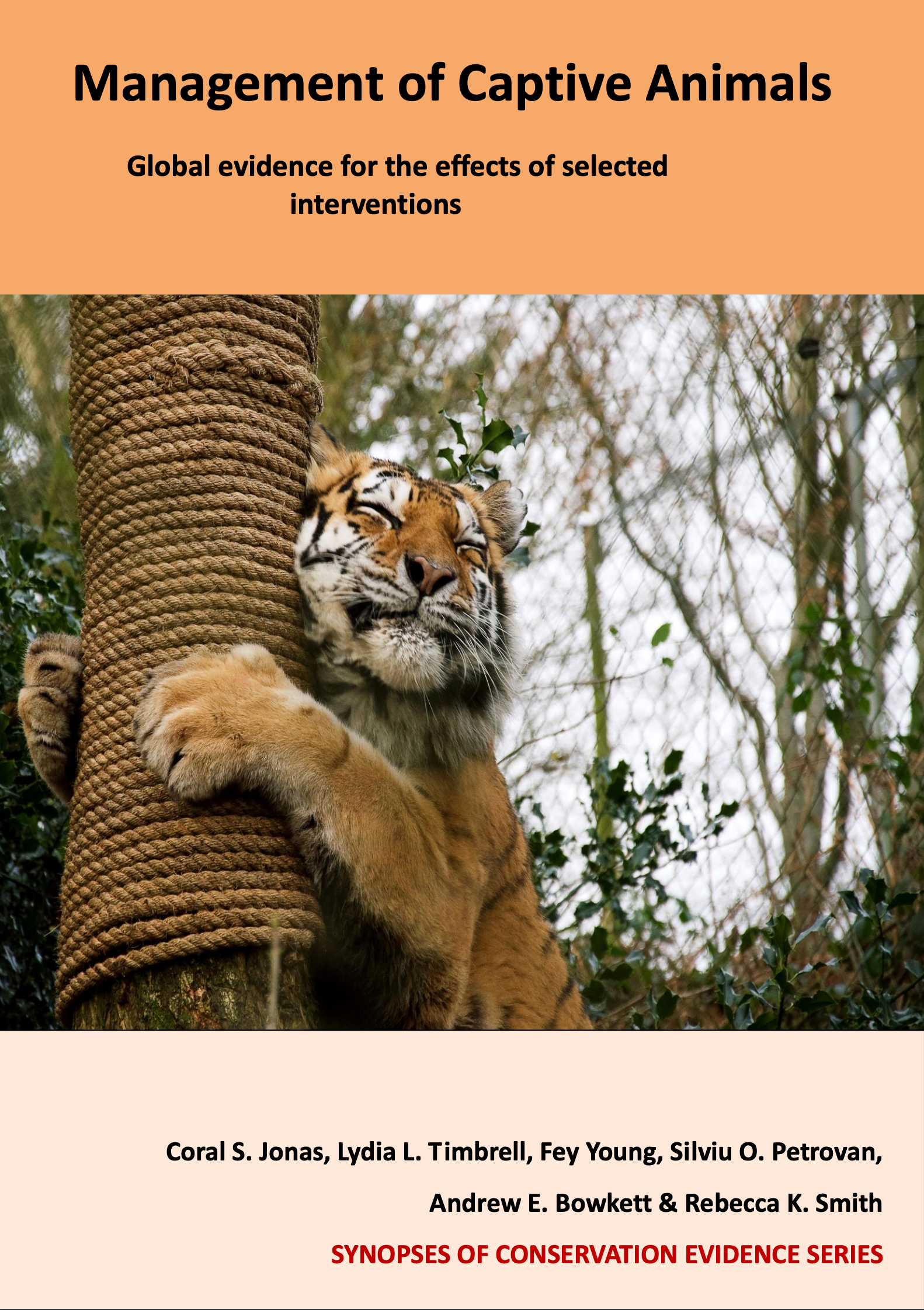Carnivores: Supplement meat-based diets with prebiotic plant material to facilitate digestion
-
Overall effectiveness category Unknown effectiveness (limited evidence)
-
Number of studies: 1
View assessment score
Hide assessment score
How is the evidence assessed?
-
Effectiveness
50% -
Certainty
25% -
Harms
0%
Study locations
Supporting evidence from individual studies
A replicated, before-and-after study in 2012 of Indian leopards Panthera pardus fusca in a zoo in India, found that supplementing food with Jerusalem artichoke Helianthus tuberosus, increased two types of gut microbiota, faecal scores and moisture content. Lactobacillus (8.24 log10cfu/g faeces) and Bifidobacterium spp. (13.04 log10cfu/g faeces) and mean faecal scores (2.39) and faecal moisture content (232.1 g/kg) were higher compared to a diet with no Jerusalem artichoke (Lactobacillus: 7.15 log10cfu/g faeces; Bifidobacterium spp.: 12.13 log10cfu/g faeces; faecal score: 1.80; faecal moisture content: 183.7 g/kg). The Jerusalem artichoke appears to improve gut health by promoting beneficial bacteria in the colon. Prior to treatment, eleven leopards housed individually were fed their normal diet of buffalo meat-on-bone with no supplement and during treatment a supplement of Jerusalem artichoke (2% of the diet dry matter basis) was added. Each trial consisted of 18 days of adaptation followed by four days of data collection (blood and faecal samples). Faecal scores were recorded daily (1-5, 1 being the most firm) and blood samples were taken using physical restraint in crush cages on the 22nd day of each trial.
Study and other actions tested
Where has this evidence come from?
List of journals searched by synopsis
All the journals searched for all synopses
This Action forms part of the Action Synopsis:
Management of Captive Animals
Management of Captive Animals - Published 2018
Captive Animal Synopsis





)_2023.JPG)














